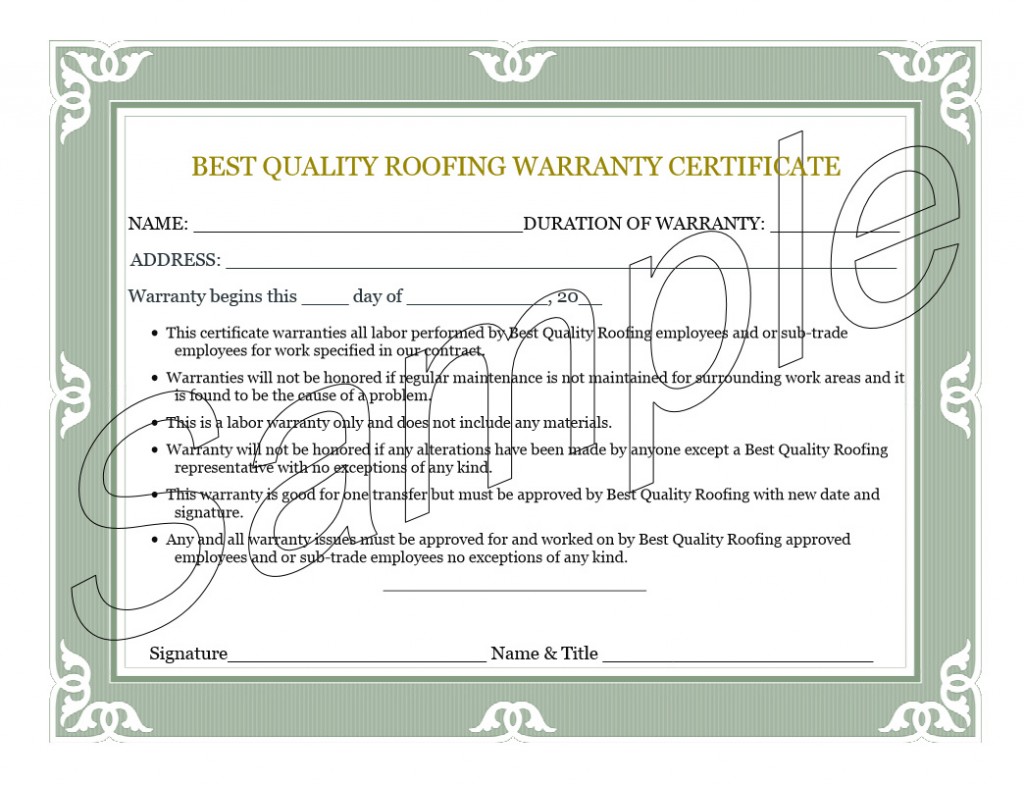 New roofs are a costly investment – which really shouldn’t be a surprise. Your roof is one of the most important features of your home; not only does it protect your family and belongings from inclement weather, but it provides important structural support to your home as well. Generally speaking, roofs are built to last, too. On average, a properly installed roof should last somewhere between 20 and 30 years, but it is still important to ensure your roof is covered by an appropriate warranty. Unfortunately, many homeowners are easily confused when it comes to roofing warranties. So, let’s take a closer look at what you can expect from your roofing warranty.
New roofs are a costly investment – which really shouldn’t be a surprise. Your roof is one of the most important features of your home; not only does it protect your family and belongings from inclement weather, but it provides important structural support to your home as well. Generally speaking, roofs are built to last, too. On average, a properly installed roof should last somewhere between 20 and 30 years, but it is still important to ensure your roof is covered by an appropriate warranty. Unfortunately, many homeowners are easily confused when it comes to roofing warranties. So, let’s take a closer look at what you can expect from your roofing warranty.
First of all, it is important to know the distinction between manufacturer warranties and workmanship warranties on a roof. If your roofing contractor tells you that your roof is covered by a 30-year warranty, what does this mean? Does it mean that if anything goes wrong with your roof that repairs or replacement are going to be covered for the next 30 years? Likely not. Instead, roofing warranties are classified as either a manufacturer warranty or a workmanship warranty. A manufacturer warranty covers problems with roofing materials and a workmanship warranty covers problems with installation.
Different roofing materials will have different warranties. In fact, even similar materials can have different manufacturer warranties. Depending on the quality (and usually cost) of the materials, you may expect longer or shorter warranties. Ultimately, shingles covered by 25-year manufacturers’ warranties are designed to last 25-years. If your roofing materials are defective, the manufacturer may replace the material if it is within its warranty period. However, it is usually very unlikely that roofing materials are defective, and problems with your roof are not likely to fall under the guidelines of your manufacturer’s warranty. Nevertheless, a skilled roofing professional should be able to determine whether the roofing failure is due to manufacturer defects or installation problems.
In the case of improper installation, you’ll need to refer to your workmanship warranty. This warranty is determined by your roofing professional; if leaks or damage appear on your new roof, you’ll likely be working with that professional. Most workmanship warranties are much shorter than those offered by manufacturers. You should therefore take care to negotiate this warranty carefully with your roofing professional, or at least make sure to ask your roofer about their workmanship warranty before hiring them to do your roofing replacement.
Ultimately, it’s important to remember that with all warranties – regardless of industry, service, or product – feature fine print. As a homeowner, it’s in your best interest to do your due diligence and review both your manufacturer and workmanship warranties carefully before beginning your roof replacement project.

